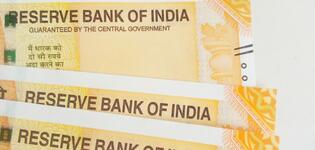Blog
Breaking the cycle of clientelism: How access to formal networks can empower the poor
In democracies around the world, election season is often associated with the power of political machines and their attempts to sway voters in their favour. While some of these efforts are overt, such as candidate debates and television ads, many rely on more pernicious strategies like electoral clientelism.
Electoral clientelism is a practice that involves offering material benefits, such as jobs or cash, to voters in exchange for their political support during election season. Although this practice has long been accepted in politics, particularly in many Global South countries where material resources are scarce, recent scholarship examines how these exchanges are structured, often disproportionately targeting poorer voters, and what this might mean.
As a part of UNU-WIDER’s research project on clientelist politics, we study the role that social networks play in influencing how poor voters are targeted with offers of electoral clientelism. Our study seeks to answer two questions: are poorer voters more likely to receive handouts than wealthier ones and does the centrality of a voter’s position within their social network influence the likelihood they will be targeted?
Electoral clientelism in the Philippines
To answer these questions, we examine formal network connections and informal family relationships between 900 Filipino voters and local politicians. We find that brokers tend to target poorer voters in disproportionate numbers. Additionally, we observe that these brokers rely heavily on informal familial ties when selecting targets among poor voters, with the poorest central voters being the most likely to receive offers of electoral incentives.
However, our analysis reveals limited evidence to suggest that individuals situated at the center of these informal networks, whether poor or not, are more susceptible to political monitoring or enforcement from politicians or their agents.
Importantly, access to alternative means of support, such as workers’ associations or community organizations, reduces the likelihood of being targeted for exchanges of electoral clientelism. It also decreases fears of punishment for failing to reciprocate to voters. In other words, having access to other sources of support can give poorer voters more agency and freedom to make choices that align with their own interests.
Options for strengthening voter autonomy
Along with other findings in the literature, the study suggests that policy reforms that reduce the vulnerability of voters, particularly the poorest, and take discretion for resource distribution out of the hands of politicians and their agents, can reduce clientelism. Additionally, the creation of and investment in formal local-level civil society institutions could provide a remedy to some of the more harmful consequences of electoral clientelism.
Overall, this research represents an important contribution to our understanding of how electoral clientelism operates among poor voters, and how similar exchanges may play out among other demographics. It highlights the potential for empowerment among poorer members of society and underscores the important role that social networks can play in shaping political behavior.
Nico Ravanilla is an Assistant Professor of political science at UCSD School of Global Policy & Strategy. He uses natural and field experiments to evaluate policies that improve political selection, democratic accountability, and governance in developing democracies, with special focus on Southeast Asia and the Philippines.
Allen Hicken is a Professor of Political Science at the University of Michigan. He works on political parties, elections, and clientelism, with a particular focus on Southeast Asia, especially the Philippines and Thailand.
The views expressed in this piece are those of the author(s), and do not necessarily reflect the views of the Institute or the United Nations University, nor the programme/project donors.
 Join the network
Join the network



